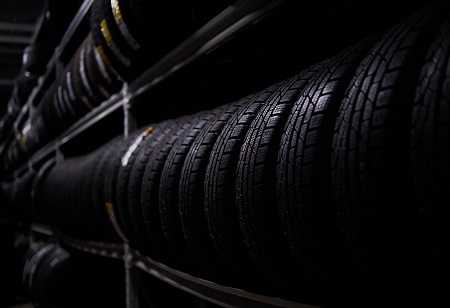
Industrial rubber is the most overlooked aspect of anything it is a part of. It is an umbrella term for numerous rubbers used in everything from automobiles to spacecraft parts. This unassuming material plays a significant role in the material handling industry. With the rise of automation and the e-commerce boom, the material handling industry is one of those industries that grew in tandem with them.
This growth can be reflected in the research by the business research company, which estimated that it will grow from $398.29 billion in 2023 to $424.55 billion in 2024. Material handling industrial equipment and industrial rubbers share a direct relationship, as the former is one of the most significant users of industrial rubber. Here are a few of the multi-faceted applications that industrial rubber is overlooking.
Conveyor Belts are a mainstay in industries like Automobile assembly lines, FMCG (food packaging/ processing), and any mass manufacturing facility. The quality of the rubber plays an essential role in the belt’s frictional resistance, elasticity and high-volume production endurance. All these criteria must be met to sustain a continuous and smooth workflow.
Ford Motors was the first to implement this equipment in their automobile manufacturing facilities. Automotive parts are moved around on conveyor systems fitted with industrial rubber belts through various production stages.
"Electric mobility is going to change a lot of things. The number of components will drastically reduce, and the life cycle of a car will become longer," Prakash Kumar, Head Of IT, BMW India
Supply chain and logistics are strongly reliant on the mobility of various equipment. It is the tires that bear the load. Industrial rubber in the form of tires is a critical component of forklifts, pallet jacks and other material-handling vehicles. The demands on these machines are diverse: navigating confined spaces, lifting heavy loads and many more.
Their industrial rubber variety is engineered with shock-absorbing capabilities and high load-bearing capacity, ensuring the machines operate with precision and stability, contributing to a safe working environment. With advancements in sensor technology, it is now possible to identify degradation and tear of the rubber that isn’t visible.
UPS, one of the world’s largest logistics companies, is a beneficiary of this as they carry nearly more than a million tons of packages every day, and the unseen load bearer is the tires; this showcases how they are a significant contributor to a high paced distribution in the global trade.
Material handling systems often involve machinery and equipment with numerous moving parts. The efficiency of these parts is strongly reliant on effective sealing solutions. The quality of the industrial rubber, in the form of seals and gaskets, plays a pivotal role.
The gaskets and seals made from Industrial rubber shield against contaminants like dust, moisture and other harmful elements from reaching the interiors and interfering with the efficiency of these complex systems. Experts recognize the reliability of machines is proportional to the quality of the rubbers used. This minimizes the risk of operational downtime and excess maintenance costs.
Siemens manufactures complex yet precise measuring instruments. These machines are vital in all major sectors. It is essential to have quality seals and gaskets that do not interfere with the internal operations of these machines, which can compromise the outputs they yield.
As industries increasingly face pressure from authorities to incorporate sustainable practices, experts in the material handling sector are increasingly leaning towards adopting environmentally friendly solutions. When sourced ethically and recycled appropriately, industrial rubber emerges as a sustainable alternative with the potential to reduce the ecological footprints of the material handling industry.
Innovations in rubber recycling technologies and the application of recycled rubber into new products display the commitment shown by industries to transition into eco-friendly alternatives. Professionals constantly seek ways to repurpose old, worn-out conveyor belts and tires to produce new commodities.
"Innovation stimulates the progress of any organization & therefore we innovate in every way, be it new & improved products, techniques, practices of development & production," Bejoy Chandrasekhar, Managing Director, RCS Enterprises.
In the intricate web of the material handling industry, industrial rubber emerges as a silent force that powers efficiency, durability, and safety. Rubber is an indispensable component, from conveyor belts facilitating the seamless flow of materials to tires ensuring the mobility of handling equipment and gaskets and seals protecting the integrity of machinery.
For material handling experts, understanding industrial rubber's nuanced applications is critical to optimizing operations and staying ahead in an ever-evolving industry. As technology advances and sustainability becomes a focal point, the role of industrial rubber in shaping the future of material handling cannot be overstated. Industrial rubber will continue to drive the material handling industry toward more excellent performance, reliability, and environmental responsibility by collaborating with experts, manufacturers, and innovators.
We use cookies to ensure you get the best experience on our website. Read more...